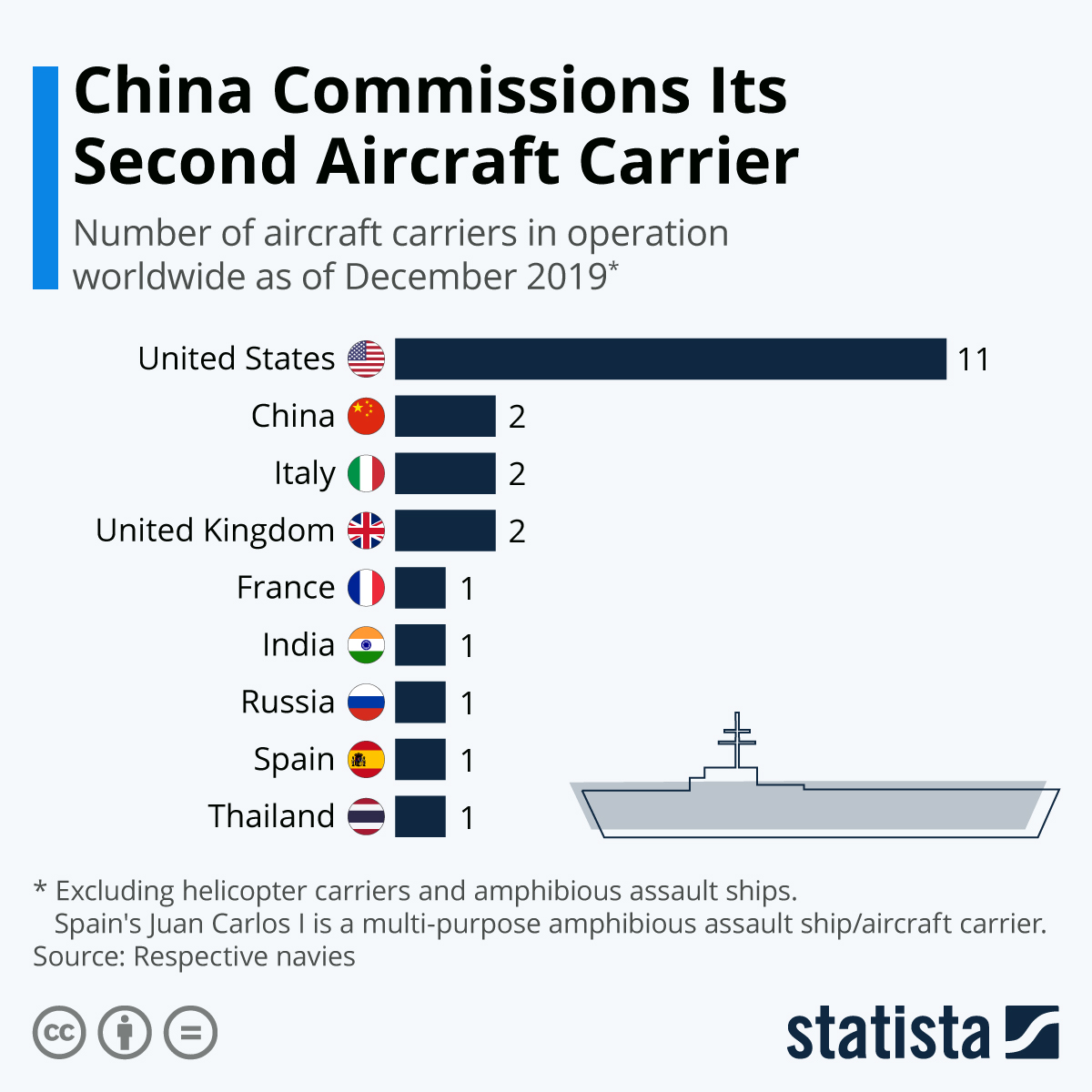China officially commissioned its first domestically-built aircraft carrier, the Shandong, in Hainan on Tuesday. The 55,000 ton vessel marks a significant evolution in the People Liberation Army Navy's (PLAN) ambitions and it has become the country's second carrier after the Liaoning. That vessel was originally built in the USSR in the mid-1980s before eventually being rebuilt in Dalian and commissioned into the PLAN as a training ship in 2012.
Only four countries can now boast navies operating two or more aircraft carriers and the others are the United States, the United Kingdom and Italy. The Royal Navy recently made a big leap itself by commissioning HMS Prince of Wales into the fleet. That 65,000 ton ship joins HMS Queen Elizabeth and each will be capable of carrying up to 40 F-35B Lightning II stealth fighters.
Nobody comes close to matching the U.S. Navy when it comes to aircraft carriers, however. It currently operates 11 and the newest vessel is the state-of-the-art USS Gerald R. Ford which was commissioned into the fleet in July 2017. U.S. aircraft carriers are notable as being nuclear-powered behemoths crewed by nearly 6,000 people and capable of carrying up to 90 fixed wing aircraft and helicopters.
The U.S. Navy also perates 8 Wasp class and one America class amphibious assault ships (with another scheduled to join the fleet in summer 2020) which are similar in size to France's Charles de Gaulle and are capable of operating considerable numbers of fast jets. Russia's navy suffered a recent setback when its only aircraft carrier, the notoriously unreliable Admiral Kuznetsov, caught fire in Murmansk. Last October, a crane fell on the vessel and the latest incident might prove the final nail in its rusty coffin.





















